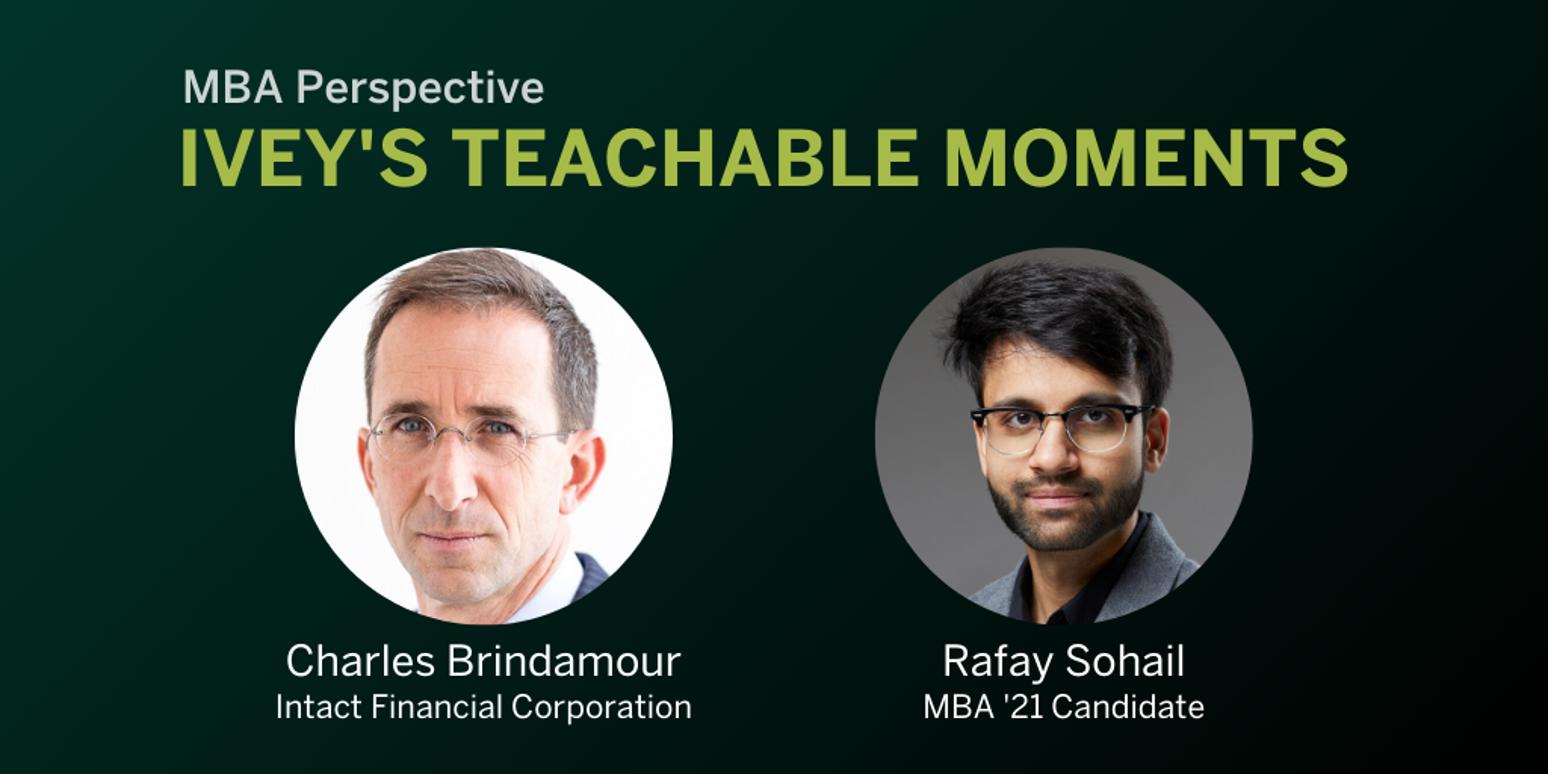Rafay Sohail is a Mechanical Engineering graduate from the University of Waterloo who has worked in the engineering consulting industry for the past three years. Rafay has also worked in the oil and gas, transit, and energy sectors through his co-op terms at Waterloo. His personal goal in Ivey’s MBA program is to learn from industry leaders on how to amalgamate technicality and business acumen to effectively lead an organization. Charles Brindamour, CEO, Intact Financial Corporation, discusses his key observations as a leader and the impact of economic downturns on business operations, as well as employee mindsets.
Convey confidence through effective communication
In the context of COVID-19, news outlets and social media platforms have provided fast access to a wide range of opinions, some of which include misconceptions and misnomers. Staying objective and delivering fact-driven information becomes of utmost importance to counteract any rising negativity. It is an opportunity to strengthen trust and build on relationships, to live by the values and charters of the organization, and to display empathy. All of these elements are keys to success in any business. Facts, context, and objectivity are key traits to a successful dialogue between a leader and his/her team. For the past three months, Brindamour has been conversing with staff every morning on a daily basis, which is in stark contrast to his once-a-month email touch-point prior to the pandemic. He has also dedicated ample time to distributors, suppliers, and customers alike in an effort to create transparency and build rapport. The takeaway: the crowd looks up to leaders for direction in times of distress, and well‑equipped leaders introduce calm among the crowd and give people confidence by staying steady, objective, and sympathetic.
Cream always rises to the top
One of Brindamour’s key realizations as a leader is the importance of talent. The difference in the quality of work and the willingness to go the extra mile between employees becomes evident, particularly in unprecedented times. Troubled times distinguish top and earnest performers from the rest. This performance gap is further exacerbated during a crisis. It is precisely that initial investment in talent that bears fruit in the long run. Top talent form the ‘control points’ of the business. With more control points, leaders are better able to pull the organization together towards a common goal. These ‘control points’ stand out and help navigate the organization to safety. The takeaway: as future leaders, we will need to take a risk on talent and learn to identify accountable individuals capable of rising to the occasion when the situation demands it.
Stop, reflect, and narrow down the strategic focus
Imagine this: it is 5:00 pm in Tokyo and you are standing at the Shibuya Crossing, with thousands of pedestrians hustling and bustling around you. A day in the life of a CEO can be analogous to this setting, where a flurry of problems attack a leader from all angles. In Brindamour’s own words, tackling numerous problems at once can feel like “sailing in the storm rudderless”. In such situations, it important to prioritize and establish a focused strategy. Commit to a subset of issues at hand and develop strategies around those high priority items, before dynamically shifting focus to the next. This minimizes confusion and helps to disseminate optimism and positivity among the cohort. The takeaway: a narrow set of strategic priorities acts as a compass that can guide through rough waters. As future leaders, at times, we may need to forgo a holistic approach and focus on the details that require immediate attention.
Use the past to shape the future
Part of Brindamour’s success as a leader is attributed to his ability to learn from the past. As Canada prepares to re-open the economy, common questions emerge for all businesses: How should one pivot strategies in a post-COVID-19 world? How best to adapt to a potentially new and revitalized consumer base? What are the permanent trends coming out of the economic downturn? Taking over as CEO of Intact Financial in 2008 and learning from the financial crisis, Brindamour believes that the focus should be on heavy, rather than popular, trends. “If you bet on the flavour of the day, you will zig‑zag your way through to retirement”, said Brindamour. In essence, falling in love with new, temporary, ideas should be avoided. Drawing parallels between the prevailing and past conditions is an important first step. Past experiences with comparable economic conditions provide valuable insight that can help identify emerging, permanent trends. This allows a business to capitalize on its strengths and strategically position itself against their competitors.



